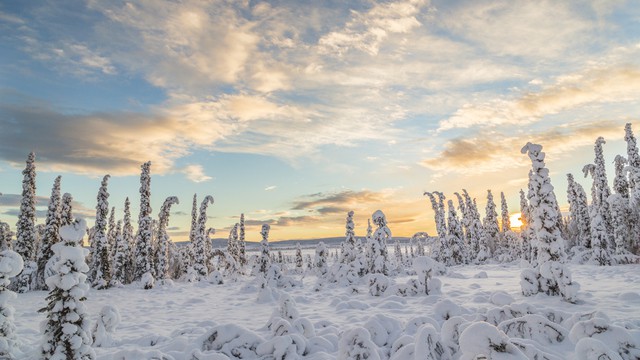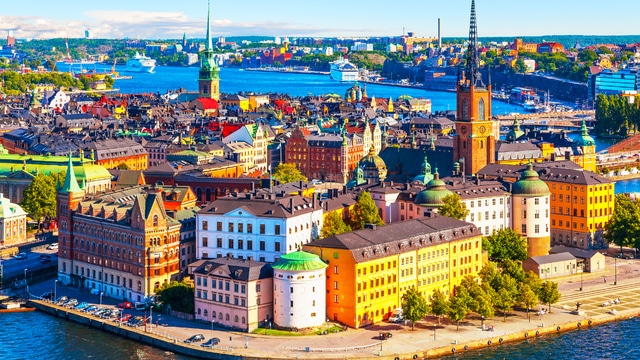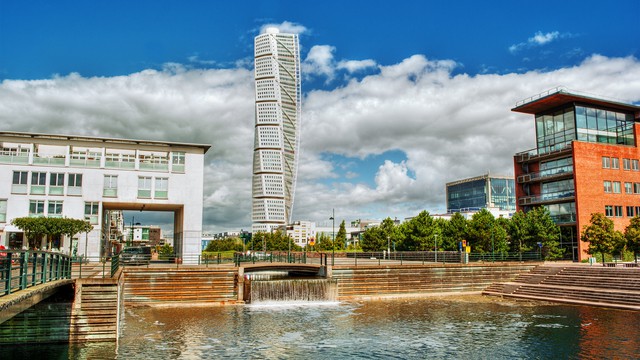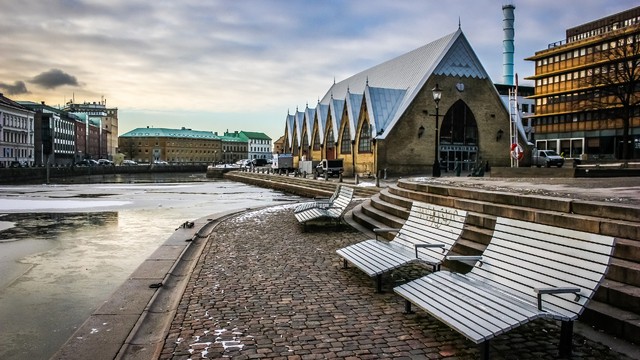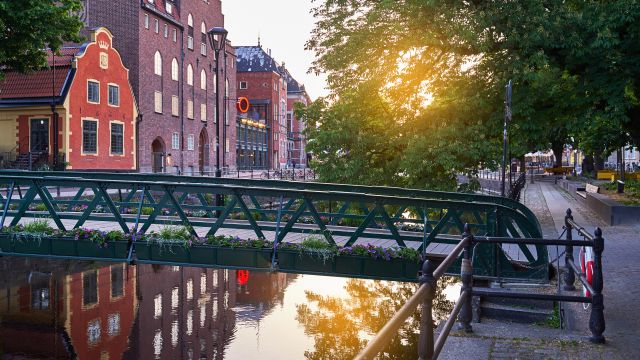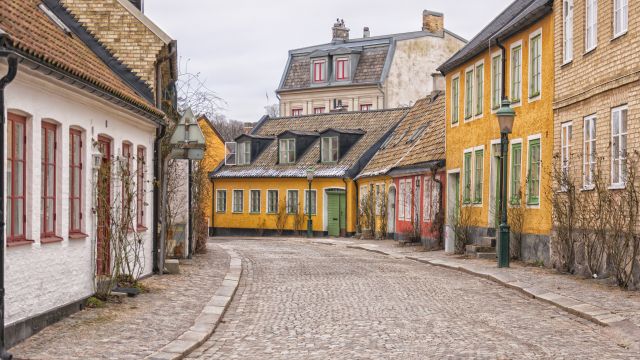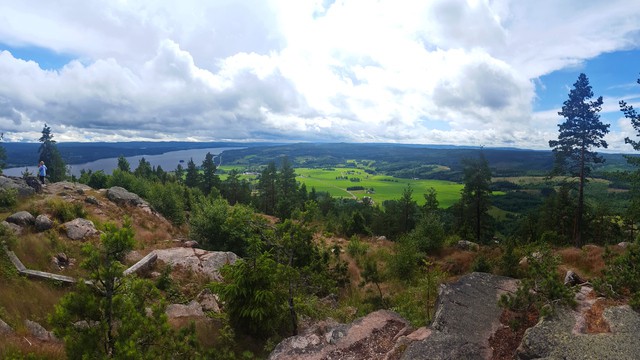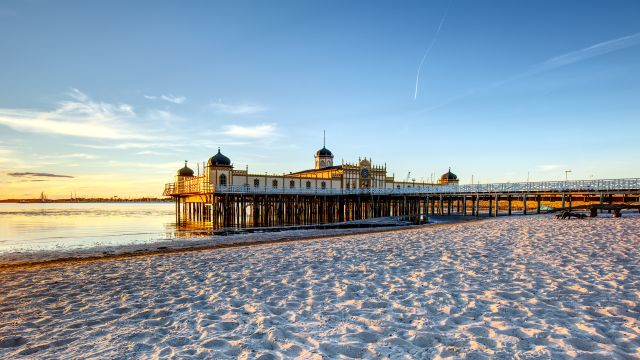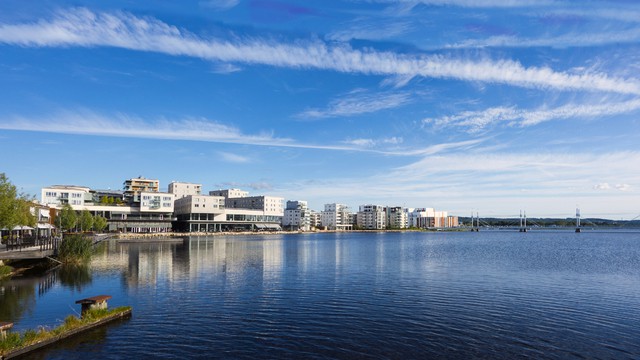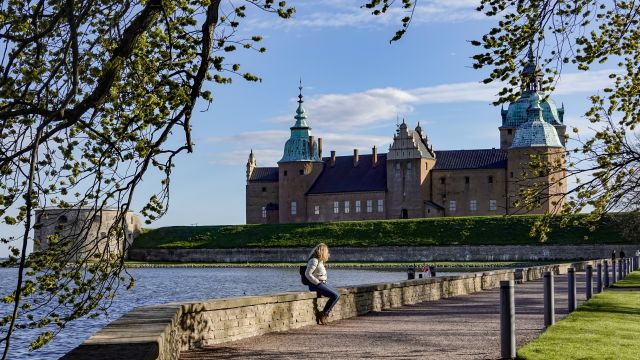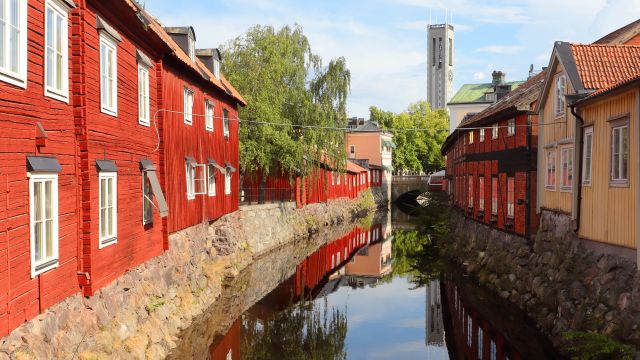What’s the climate like in Swedish Lapland?
The current climate of Swedish Lapland features average monthly temperatures ranging from highs of 20°C during the day to lows of -8°C. The average yearly temperature is around 6°C. At night, temperatures in the colder months average around -16°C and in the warmer months around 10°C.
The highest temperature recorded in Swedish Lapland in recent years was 31°C in July 2019. The lowest daytime temperature recorded was -31°C in January 2014.
On average, Swedish Lapland gets 817 mm of precipitation each year. Of this, about 190 cm is snowfall. For comparison, UK gets 701 mm of precipitation each year.
Curious about the climate in other parts of Sweden? Check out the weather and climate in places like Stockholm, Småland, Malmö, or have a look at other destinations in Sweden.
Best time to visit Swedish Lapland?
The best time to visit Swedish Lapland for pleasant to warm weather is June through August. There might be some rain during this period, but the temperatures are just right for exploring Swedish Lapland.
Climate Table of Swedish Lapland
The climate table of Swedish Lapland shows the average temperatures, precipitation, snow, and UV index per month. The table gives an overview of the average day and night temperatures in degrees Celsius, the total amount of precipitation in millimetres, the total snowfall in centimetres, and the UV index for each month. Precipitation is always measured as water, even if it's snow or hail.
Click on the month name to see more weather details, like daily averages, temperatures, and precipitation for the past years in that month.
- Average yearly temperature: 6°C
- Highest temperature: 20°C in July
- Lowest temperature: -8°C in January
- Precipitation*: 817 mm per year, averaging 68 mm per month
- Snowfall: 190 cm per year
- Driest months: 31 mm in March, 33 mm in April and 35 mm in November
- Wettest months: 141 mm in August, 123 mm in September and 109 mm in July
*Precipitation is measured as a combination of rain, snow, and hail
Weather experiences in Swedish Lapland
Good



With clear nights full of stars and sometimes even the north... more
Elbert
Good



The snow had almost completely melted and the days were alre... more
Kim
Average Temperature per Month in Swedish Lapland
This graph shows the average maximum temperatures per month in Swedish Lapland, Sweden. The temperatures are shown in degrees Celsius and the average is calculated based on the recorded temperatures per month from past years.
Average Precipitation per Month in Swedish Lapland
This graph shows how much precipitation Swedish Lapland, Sweden, gets on average per month. Precipitation is always measured as water, even if it's snow or hail. This makes it easy to compare how much has fallen, regardless of the form of precipitation. The amount of precipitation is measured in millimetres and the average is calculated based on the recorded precipitation per month from past years.
Average Snowfall per Month in Swedish Lapland
This graph shows how much snow Swedish Lapland, Sweden, gets on average per month. The amount of snowfall is measured in centimetres and the average is calculated based on the recorded snowfall per month from past years.
Average UV Index per Month in Swedish Lapland
This graph shows the average UV index per month in Swedish Lapland, Sweden. The UV index indicates the intensity of ultraviolet radiation and ranges from 0 to a maximum of 11.
Yearly Temperature in Swedish Lapland
This graph shows the average yearly temperature in Swedish Lapland, Sweden. The yearly temperature, expressed in degrees Celsius, is the average of all twelve monthly temperatures summed up for that year.
Total Yearly Precipitation in Swedish Lapland
This chart shows the total yearly precipitation in Swedish Lapland, Sweden, over the past few years. The total yearly precipitation, measured in millimetres, is the sum of all the rain that fell in the twelve months of that year.
Total Yearly Snowfall in Swedish Lapland
This chart shows the total yearly snowfall in Swedish Lapland, Sweden, over the past few years. The total yearly snowfall, measured in centimetres, is the sum of all the snow that fell in the twelve months of that year.
More Climate Info About Swedish Lapland
known as Swedish Lapland, Sweden's northernmost region is distinguished by a harsh climate. Due to its subarctic climate, this area typically experiences long, cold winters and short, cool summers.
Long, cold winters with average lows below freezing from November to April are a feature of the subarctic climate. In Swedish Lapland, low winter temperatures can reach as low as -30 degrees Celsius.
Despite the cold temperatures, relatively little snow falls in the area, and the snow that does fall does not stay on the ground for long due to the often strong winds in the area.
Swedish Lapland has short, cool summers with average highs of around 10 degrees Celsius. Despite the long summer days with plenty of sunlight, the area feels much cooler than other parts of Sweden due to the cool temperatures and strong winds.
Winter
Swedish Lapland has long, bitterly cold winters with average lows below freezing and high winds. Snow does not fall often, but when it does, it quickly disappears from the landscape.
Spring
Swedish Lapland's spring is characterised by gradually rising temperatures and an increase in precipitation. Before summer arrives, the region experiences a brief period of mild weather as the snow begins to melt.
Summer
Swedish Lapland experiences short, cool summers with average highs of around 10 degrees Celsius. Despite long hours of sunlight, the area feels much cooler than other parts of Sweden due to the cool temperatures and strong winds.
Despite the long hours of sunlight, the area feels much cooler than other parts of Sweden due to the cool temperatures and strong winds.
Autumn
The autumn months of Swedish Lapland are characterised by rapidly falling temperatures and an increase in precipitation. Before the chilly, snowy winter begins, there is a brief period of mild weather in the region.
Best Time to Visit Swedish Lapland
A beautiful and special location, Swedish Lapland offers breathtaking landscapes, intriguing culture and countless opportunities for adventure. But when is the ideal time to travel? Your travel goals will determine the answer to this question.
If you want to see the Northern Lights, the best time to travel is in winter, from November to February. The sky is at its darkest then and conditions are best for seeing the Northern Lights. If you like outdoor activities like dog sledding, snowmobiling or skiing, the winter period is also the best time to go.
If you want to see the midnight sun, however, the best time to travel is in summer, from June to August. With the sun never setting during this period, you can take advantage of endless daylight and long, pleasant evenings.
Swedish Lapland is truly a magical place that will leave you with lifelong memories, no matter when you decide to go there.
Weather experiences in Swedish Lapland
The weather in Swedish Lapland is rated an average of 3,9 out of 5 stars by 11 visitors. Have you been to Swedish Lapland? Share your weather experience to help other visitors.
Write your own review 
You have to love snow and cold temperatures. The days are short, but the northern lights are phenomenal.— This text is automatically translated to English
With clear nights full of stars and sometimes even the northern lights! Some days were difficult with snowstorms, but overall the weather was good.— This text is automatically translated to English
 Kim – was here in May
Kim – was here in MayThe snow had almost completely melted and the days were already very long, which was perfect for outdoor activities. Be sure to dress warmly!— This text is automatically translated to English
 Sjoerd – was here in July
Sjoerd – was here in JulyTemperatures were moderate throughout the day and ideal for outdoor activities. Evenings were cool but bearable. Sometimes it was cloudy and rainy, which had its own charm.— This text is automatically translated to English
 Daphne – was here in April
Daphne – was here in AprilDespite the cold, the clear night sky was full of breathtaking aurora borealis. Snow and ice still covered the landscape, creating a beautiful winter scene. A true winter fairy tale!— This text is automatically translated to English
 Wouter – was here in June
Wouter – was here in JuneJune in Swedish Lapland was a great combination of long daylight hours and unpredictable weather. Although the occasional rain shower dampened our mood, the mild temperatures and blazing midnight sun made up for it.— This text is automatically translated to English
The air temperature drops well below freezing with an average of -15°C. Snow covers the landscape with an enchanting white blanket. Make sure you wear warm clothes!— This text is automatically translated to English
During the day, the landscape was lit up by the brilliant sun and at night by the magical northern lights. Although the cold was a challenge, it was worth it.— This text is automatically translated to English
The temperature was cool but bearable. To enjoy outdoor activities, wearing multiple layers was a must. The northern lights were an absolute highlight.— This text is automatically translated to English
 Julian – was here in March
Julian – was here in MarchBeautiful snowy landscapes under bright sunshine, albeit quite chilly. Be sure to bring warm clothes as the temperature could easily drop below freezing. The wind blew a little, but not enough to cause discomfort.— This text is automatically translated to English
There was little sun during the day, but the polar night and the northern lights were unforgettable.— This text is automatically translated to English
Have you been to Swedish Lapland?
Share your weather experiences in Swedish Lapland.
Average Weather in Swedish Lapland by Month
Click on a month below to see detailed weather info for Swedish Lapland. Based on historical weather data, you can see the average temperature, precipitation, wind, and UV index for each day of the month.
Popular destinations in Sweden
Discover the climate of these popular destinations in Sweden.
